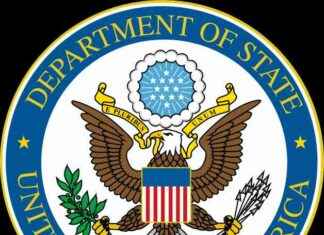When it comes to combating corruption in politics and administration, Germany has been making no progress for ten years now. This is the result of the 2022 Corruption Perceptions Index published by Transparency International. Here, the Federal Republic achieved 79 points last year, exactly as many as in the index for 2012.
In order to achieve overall progress here, it is important to include the fight against corruption in the national security strategy, which the federal government is currently working on, said the chairwoman of Transparency Germany, Alexandra Herzog. Specifically, money laundering supervision and law enforcement agencies would have to be equipped accordingly. Her deputy, Margarete Bause, said that scandals such as the mask affair or the Cum-Ex fraud had highlighted the problems that exist in Germany, but that action was always “too slow, too hesitant and too unambitious”.
Progress in the Baltics, Hungary crashes
Among the European countries where the curve has pointed upwards over the past decade are the Baltic states of Latvia, Lithuania and Estonia. The development in Greece is also viewed positively, which is still not doing particularly well with 52 points, but gained 16 points.
According to Transparency International, the situation is very different in Hungary, which replaced Bulgaria as the EU country with the worst value in this index in 2022. According to this, Hungary dropped by 13 points to 42 points over a period of ten years, putting it on a par with Kuwait and Vietnam, among others.
Turkey is falling at the same pace and currently has a value of 36 points in the index. She lost two points from last year. Turkey has lost 13 points since 2012.
Russia influenced political decisions in Germany
According to Transparency International, there is a growing danger from autocratic states such as Russia, Azerbaijan, Qatar and Morocco. They used “strategic corruption” “to exert influence in an improper manner and assert their interests”. Due to its economic and political importance, Germany is one of the main targets of this form of corruption, alongside the USA and the European institutions.
From the point of view of Transparency International, the long-term consequences of this form of influence by state actors can also be seen in the context of the Russian war of aggression in Ukraine. The association, which is dedicated to the fight against corruption, notes with regard to Germany: “Over the years, Russia has built up a network of influence at federal and state level with the help of massive financial resources.” Last but not least, examples of this include lucrative posts for former Chancellor Gerhard Schröder (SPD), or the financing of the state’s own “Foundation for Climate and Environmental Protection MV” and disinformation campaigns. In this way, Russia influenced Russia’s political decisions, for example in energy policy, and strengthened its geostrategic position.
After retiring from active politics, Schröder was, among other things, chairman of the shareholders’ committee at Nord Stream AG. This was followed by engagements as Chairman of the Board of Directors at Nord Stream 2, as a member of the Supervisory Board of the Russian oil company Rosneft and as a member of the Supervisory Board of the British-Russian oil company TNK-BP, which now belongs to Rosneft.
Germany in ninth place
The climate protection foundation was founded by the state of Mecklenburg-Western Pomerania in early 2021 to promote climate protection and at the same time to actively support the completion of the Russian-German Nord Stream 2 gas pipeline. The main financier of the foundation was the Gazprom subsidiary Nord Stream 2 AG with 20 million euros, the state provided 200,000 euros as a contribution.
Transparency compares the perceived corruption in the public sector in business, politics and administration internationally. In the ranking of 180 countries, Germany came in ninth last year. Denmark, Finland, New Zealand and Norway did best in 2022. The index evaluates data from twelve independent institutions specializing in the analysis of governance and the economic climate. Tax fraud, money laundering or illegal financial flows in the private sector are not recorded. The sources on which the index is based include research from the Bertelsmann Foundation, the African Development Bank and the World Economic Forum.
At the bottom of the index are always war and conflict regions whose state institutions have collapsed. Last year Somalia brought up the rear. The bottom ten included Syria, Yemen, Libya, Venezuela and South Sudan, among others.










